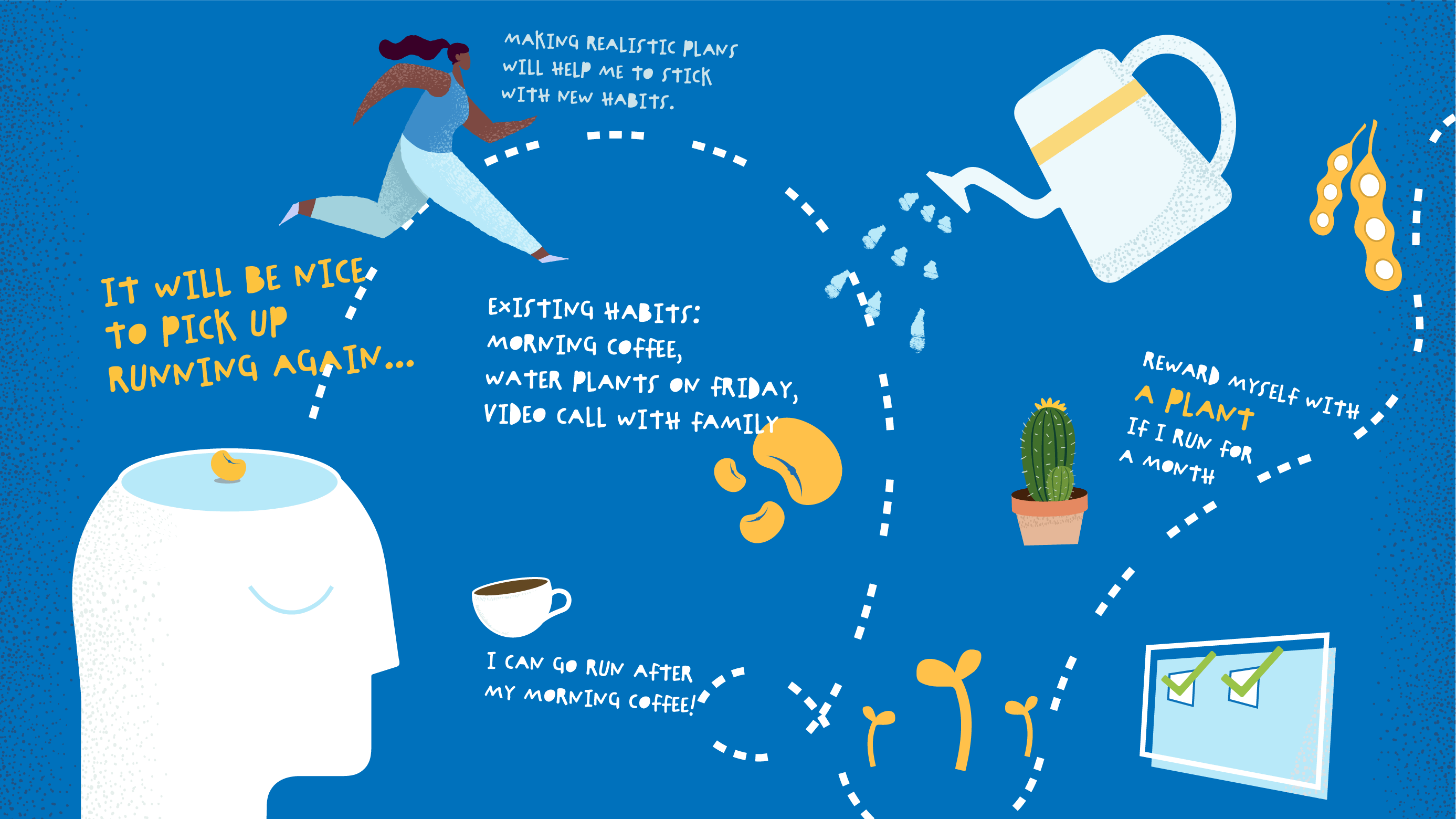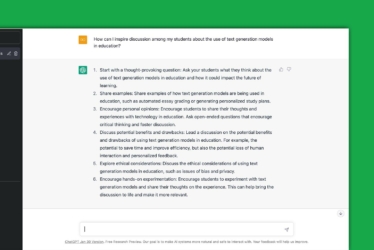Insights
How to form new habits through reflection
With this blog you can learn how to create effective (learning) habits and find reflection exercises that help you succeed in your studies.

Habits vs goals
Can you recall a goal that you set for yourself? Maybe you have made new year’s resolutions, set a savings goal, wanted to exercise twice weekly or planned study daily. Then you have probably also experienced that in the first few days after setting your goals you were doing great but after a month, it was already quite hard to keep up with what you planned. This phenomenon of setting goals and not being able to stick to them has been confirmed by recent studies on how setting goals and working towards them do not always persist in the long term. Even the most effective goal setting strategies often take a flying start but after a while they are forgotten and you might find yourself back in your old behaviour.
Forming your goals into habits can help you keep track of where you want to go. Studies have shown that making sure you stick to a routine in studying, sleeping, and physical activity can help you achieve better study results and improve your health (Logan, 2002). In this blog you will find tips on creating habits. We will give you tips on how to create a habit for reflecting, daily, weekly and monthly but these tips might also help you develop study or exercise habits.
What is a habit?
A habit is a set of behaviours tied to a specific context. This context can be a time, a place, a mood of even a person. The benefit of a habit is that it is not depended on will power or motivation. When performing a habit you are not aware of whether or not you feel like doing something, you just do it. So that feeling when you know you should be studying but you can’t seem to stop scrolling on your phone? That is the habit of your phone triggering you to keep scrolling, probably you didn’t consciously choose to do this. Creating a habit takes time but by setting up habits you are creating a powerful tool for the rest of your life.


How do you to create a long-term beneficial habit?
Setting the stage
By creating a context or surrounding that supports the habit you want to develop you can help yourself to stick to it. For example, when you want to make sure your phone does not distract you while studying, put your phone out of sight so you don’t see it when you are studying.
Another thing you can do is create reminders in your environment that trigger what you want to do. If you want to do some yoga in the morning, lay out your mat the evening before so the mat is the first thing you see when you get up. If you want to stop scrolling on your phone install a screensaver with the text “why are you here?”.
Repeat, repeat, repeat
Developing a new habit takes time. Sticking to it can sometimes be a challenge. Studies have shown that the time to develop a habit varies a lot per person, from 8 days to 256 days with an average of 66 days. Next to setting the stage creating an ‘if .. then ..’ rule can help you stay on track. For example: “If I have my morning coffee, then I will journal for 15 minutes”. This connects your habit to a stable context cue.
Similar to this you can connect a new habit to an already existing habit. For example: “After I brush my teeth I will journal for 15 minutes”. Studies showed that adding the new habit after the existing one helps create this new habit. By doing this you have already activated the automatic behaviour that leads to the first habit, this will take you straight into your new habit.
Reward
If your habit is annoying, time consuming and gives you an altogether unpleasant feeling you are not very likely to continue this habit. Making sure that your habit is intrinsically rewarding is a good way to keep up a habit over a longer period of time.
To start a habit you can trigger your intrinsic motivation by adding an external motivation and rewarding yourself. You can do this by connecting something you want to do to something you should be doing. For example by creating another if then rule. If I go for a run, then I can listen to my favourite podcast.
Tracking your progress is another simple way to reward yourself and getting a feeling of accomplishment. For example, by marking each day you reflect in a calendar.
Tips to develop a reflection habit
- Pick a time at which you write daily
- Put your journal somewhere where you can see it
- Journal together with a group
- ‘Stack’ your reflection habit on top of a habit you already have
- Create an “if .. then ..” rule
- Track your progress
- Reward yourself
Download the habit forming guides and get started
Download our reflection habit forming guides to:
- Setting up a habit – Fill in this worksheet to help you set up a daily and weekly reflection habit
- Learning habits – reflect on what and how you are learning at the beginning, middle and end of each course
- Habit tracker – Print this habit tracker to motivate yourself to keep up with your habits
Get in touch

Daniek Bosch
Learning Experience Design
d.bosch@sea.leidenuniv.nl
Bing Tang
Graphic Designer & Multimedia Producer
b.tang@sea.leidenuniv.nl
References
Fiorella, Logan. (2020). The Science of Habit and Its Implications for Student Learning and Well-being. Educational Psychology Review, 32(3), 603-625.




